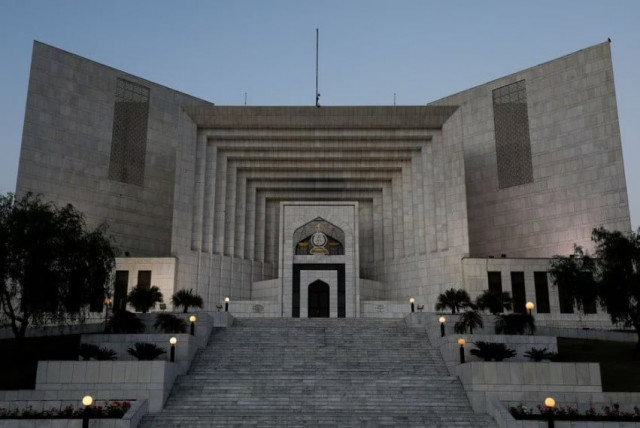SC sets conditions for maintenance of child
Rules father of child must be a poor person; grandfather must be financially at ease

The Supreme Court has set two conditions for children claiming maintenance from their grandfathers. "The father of the child must be a poor person who has no financial resources to maintain that child, and the grandfather of the child must be a person who is financially in easy circumstance,” a four-page written order authored by Justice Syed Mansoor Ali Shah said.
A three-judge bench led by Justice Mansoor adjudicated a question as to whether a decree for maintenance passed against the father of a child can be executed against the grandfather or the child had to institute a suit for maintenance against his grandfather
It added that in case either of the conditions was not fulfilled, “the grandfather is not under any obligation to maintain his grandchild”. “These two conditions are thus also the grounds of defence available to a grandfather against whom his grandchild makes a claim of maintenance."
Read SHC seeks report on child trafficking
The judgement noted that a child who claimed his maintenance from his grandfather had to prove these two conditions, and the grandfather must be provided with an opportunity to defend the claim made against him by rebutting the existence of either of these two facts.
"This is the requirement of the fundamental right guaranteed by Article 10A of the Constitution of Pakistan, which mandates that for the determination of his civil rights and obligations, a person shall be entitled to a fair trial and due process."
The matter of providing maintenance to his grandchild was a matter of civil obligation. For its determination, the grandfather must be provided with a fair trial and due process. “Both the conditions, the fulfillment of which brings a grandfather under obligation to maintain his grandchild, are factual propositions, not legal ones.
"Their existence or non-existence can, therefore, only be proved through producing their respective evidence by the parties in a properly instituted suit for maintenance." Such evidence could not be recorded in the execution proceeding nor could any determination be made therein by the executing court on these facts.
The recording of evidence and making of findings on these facts in an execution proceeding would be a useless exercise, as despite making a positive finding, an executing court could not modify the decree nor could it execute the decree against a person who was not a party to the suit.
Read more Police target unregistered immigrant children for evacuation
"Further, the Family Courts Act 1964 prescribes a procedure for how the claims of maintenance are to be entertained and decided by the Family Courts. Such a claim made against a grandfather operates against his property; he is, therefore, entitled to be dealt with the procedure prescribed by law, ie, the Family Courts Act, as per Article 4 of the Constitution.
"We, therefore, hold that a decree for maintenance passed against the father of a child cannot be executed against the grandfather, and the child has to institute a suit for maintenance against his grandfather, in case no property of his father, the judgment debtor, is found for the execution of the decree.
The judgement noted that under the Islamic law of maintenance of the children, if the father of a child had died or the father, being a poor person, had no financial resources to maintain his child, the obligation to maintain such a child passed on to his grandfather provided he would be financially in easy circumstances. In the present case, the court noted that the petitioner (grandfather) was neither a party to the suit instituted by hisgrandchild against his father nor was any decree passed against him.
"A decree that was not passed against the petitioner cannot be executed against him or his property. "By setting aside the impugned order, the writ petition of the petitioner is accepted, declaring that the orders of the executing court, dated 07.09.2018 and 17.10.2018, were made without lawful authority and are therefore of no legal effect.”
Read Pakistani teacher wins award for schooling underprivileged children
Consequently, the application of the petitioner for the release of his property from the attachment stood allowed.
“It is, however, clarified that the minor decree-holder, if so advised, is at liberty to institute a suit for maintenance against the petitioner, his grandfather, in accordance with the law, and if such a suit is instituted, the Family Court may make an appropriate order for interim maintenance of the minor at an appropriate stage of the suit if it is satisfied that the two conditions which make a grandfather liable for providing maintenance to his minor grandchild are prima facie fulfilled."



















COMMENTS
Comments are moderated and generally will be posted if they are on-topic and not abusive.
For more information, please see our Comments FAQ